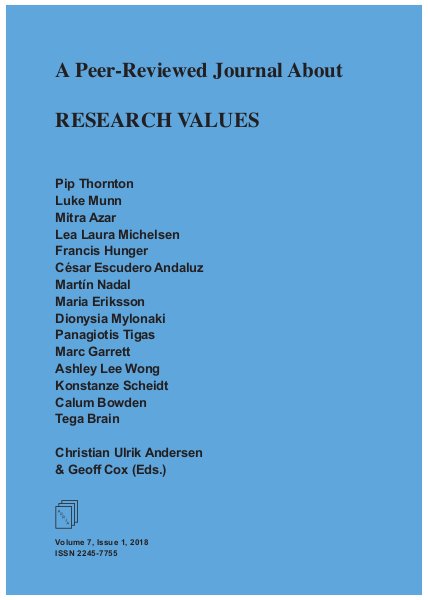Unravelling A Regulation Machine
Fake News, Toxic Comments And 'Illegitimate' Culture
DOI:
https://doi.org/10.7146/aprja.v7i1.115067Abstract
Computational censorship in the form of fake news and toxic comments regulation is a subject that comes up quite often in the public discourse, as a result of the volatile political circumstances on a global scale and due to the unquestionable impact of journalism on these circumstances. Public attention has been directed to the role of mainstream and other media in the formation of public opinion, either in the form of articles or in the form of usergenerated comments. The purpose is to analyse and allow a deeper understanding of a project that is under development, namely, computational-censorship and to show that algorithmic regulation is not a solution, but rather another layer to a more fundamental problem.
This article examines the implicationsof developing Machine Leraning/Artificial Iintelligence (ML/AI) which aims to regulate the internet and we attempt to allow a glimpse into the technical aspect of the problem as a way to back arguments that could be re-jected by the ML/AI research community as “non-pragmatic”. Finally, it aims to highlight the absurdity of the current approach to research in this area, which is the exact opposite of the rationalism that the field claims to be embracing.
Downloads
Published
Issue
Section
License
Copyright (c) 2018 A Peer-Reviewed Journal About

This work is licensed under a Creative Commons Attribution-NonCommercial-ShareAlike 4.0 International License.
Copyrights are held by the individual authors of articles.
Unless stated otherwise, all articles are published under the CC license: ‘Attribution-NonCommercial-ShareAlike’.
The journal is free of charge for readers.
APRJA does not charge authors for Article Processing Costs (APC)


